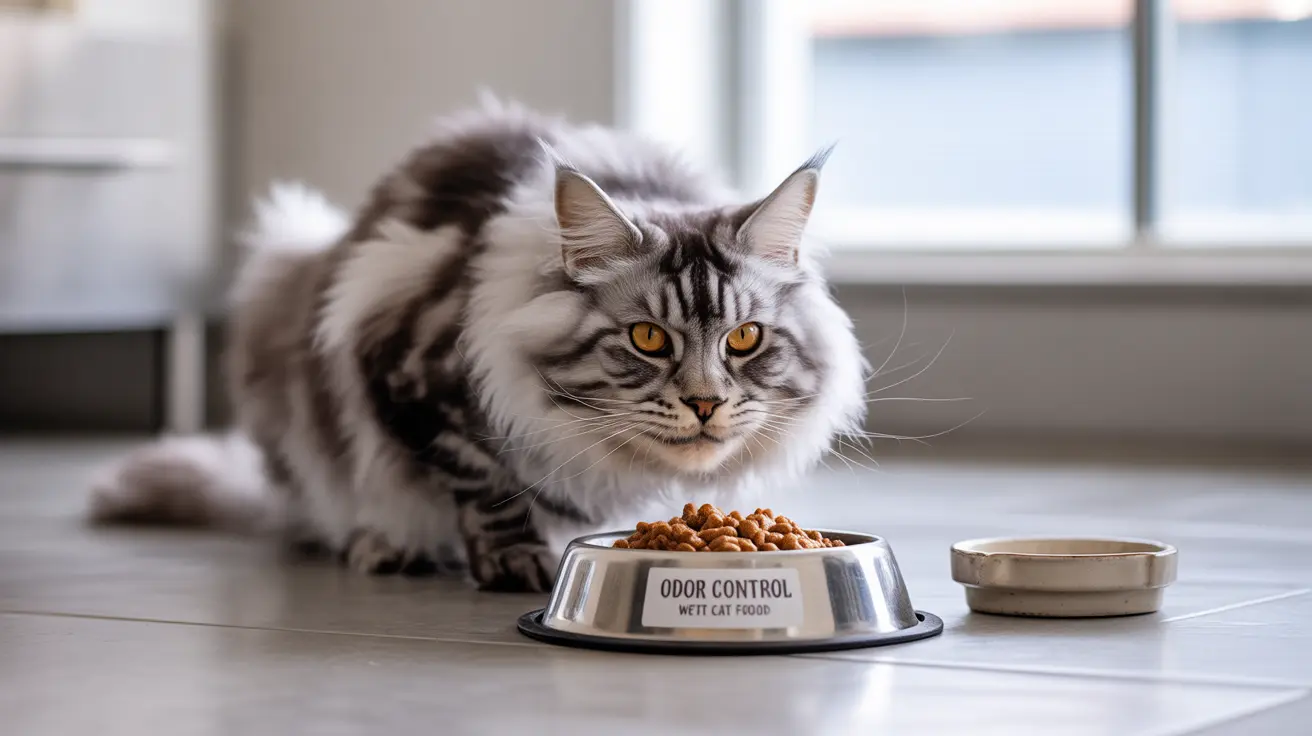Understanding Why Cat Poop Smells Strong
Before diving into solutions, it's important to understand what causes particularly smelly cat poop. The primary factors include:
- Poor quality ingredients and fillers
- Excess protein that isn't properly digested
- Food allergies or sensitivities
- Inadequate moisture content in food
- High ash content (above 5%)
- Underlying health conditions
Key Features of Odor-Reducing Cat Foods
Quality Protein Sources
Look for cat foods featuring high-quality, single-source proteins that are easily digestible. These typically include chicken, turkey, or rabbit as the first ingredient, rather than meat by-products or unnamed meat sources.
Optimal Moisture Content
Wet food or fresh food options typically lead to better digestion and less odorous waste. These foods help keep your cat properly hydrated, which is crucial for healthy digestion.
Beneficial Supplements
Foods containing probiotics, prebiotics, and omega fatty acids support digestive health and can help reduce stool odor. These supplements promote healthy gut flora and proper nutrient absorption.
Top Recommendations for Reducing Litter Box Odor
Premium Wet Food Options
- Smalls Human-Grade Fresh Cat Food
- RAWZ 96% Turkey & Turkey Liver Pate
- Royal Canin Digestive Care Formula
Quality Dry Food Choices
- Blue Buffalo Wilderness Grain-Free
- Hill's Science Diet Indoor Cat Formula
- Open Farm Harvest Chicken Freeze-Dried Raw
Tips for Transitioning to New Food
When switching to a new cat food for odor control, follow these guidelines:
- Transition gradually over 7-10 days
- Mix increasing amounts of new food with old food
- Monitor your cat's reaction and stool consistency
- Keep a consistent feeding schedule
- Maintain fresh water availability
When to Consult a Veterinarian
If changing to a high-quality cat food doesn't improve the situation after 2-3 weeks, schedule a veterinary visit. Persistent strong odors could indicate underlying health issues that require medical attention.
Frequently Asked Questions
What are the best types of cat food to reduce smelly poop?
High-quality, easily digestible foods with single-source proteins, adequate moisture content, and probiotics are best for reducing stool odor. Look for options with minimal fillers and low ash content.
How do ingredients like fillers and ash content affect my cat's poop odor?
Fillers and high ash content are harder for cats to digest, leading to stronger-smelling waste. Quality foods with ash content below 5% and minimal fillers typically result in less odorous stools.
Can feeding my cat wet food help with smelly litter box problems?
Yes, wet food often helps reduce litter box odors because its higher moisture content aids digestion and promotes better nutrient absorption.
What should I do if my cat's poop smells bad despite changing their diet?
If odor problems persist after trying a high-quality food for several weeks, consult your veterinarian to rule out potential health issues like infections, parasites, or digestive disorders.
Are probiotics or special supplements effective in minimizing cat poop odor?
Yes, probiotics and digestive supplements can help improve gut health and reduce stool odor when used alongside appropriate cat food. Look for foods with these ingredients already included or ask your vet about supplements.
Conclusion
Choosing the right cat food can significantly impact litter box odors. Focus on high-quality, easily digestible ingredients, appropriate moisture content, and beneficial supplements. Remember that every cat is unique, so you may need to try different options to find the best solution for your pet.






